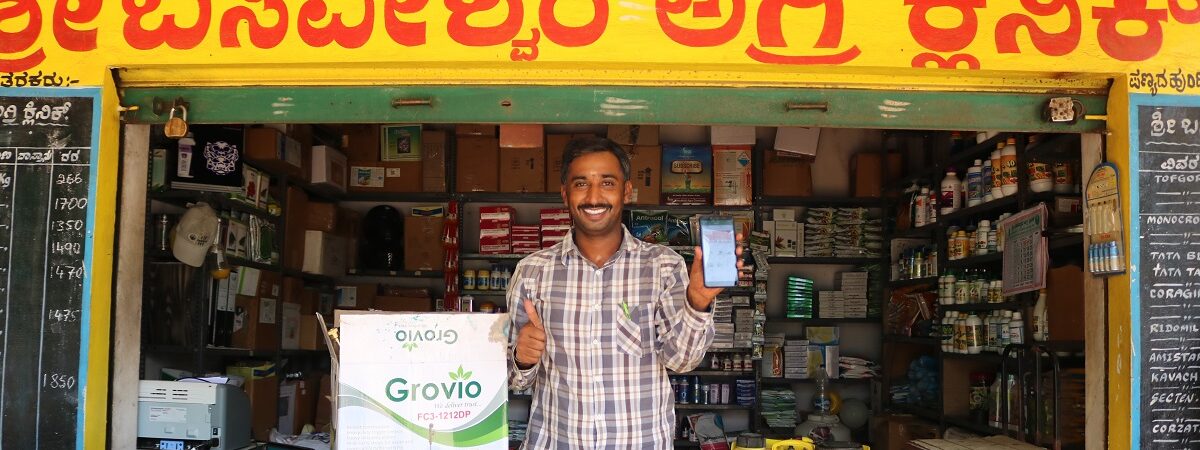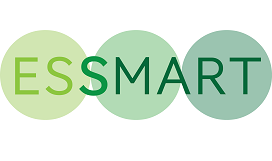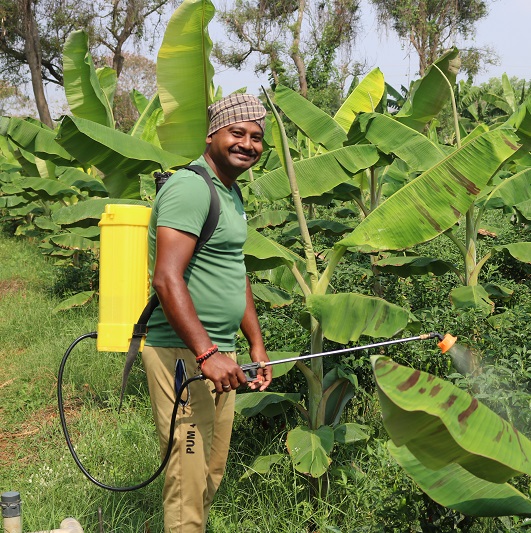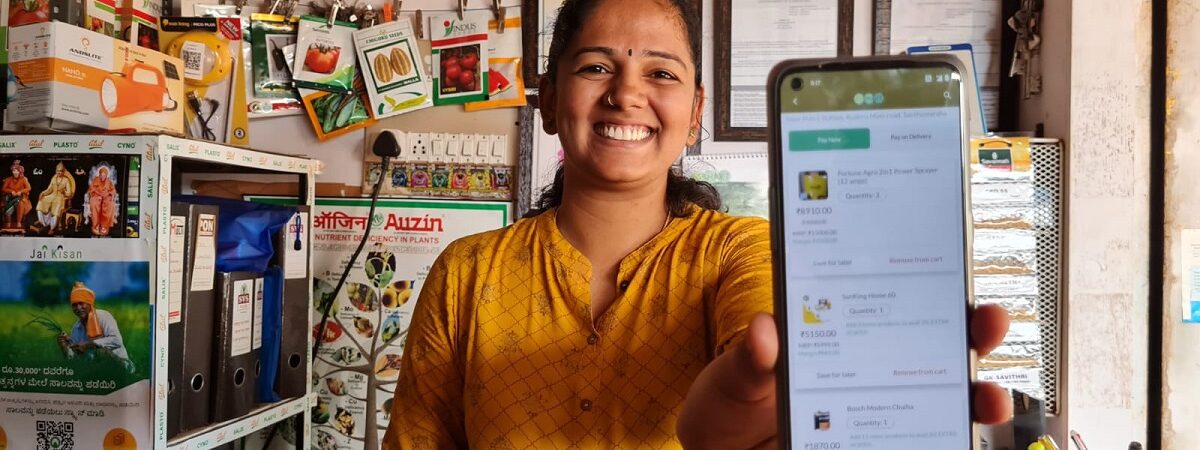
Essmart
Model & Strategy
Essmart operates as a rural retailer B2B network for high-impact agricultural and clean energy products, connecting smallholder farmers and last-mile shops with products that enhance their lives and livelihoods. With a network of 5,452 retail shops offering over 450 livelihood products, Essmart covers 20% of India’s zip codes and has positively impacted more than 1.46 million people.
The Problem
India is one of the world’s most climate-vulnerable countries and climate change is hitting smallholder farmers hardest. 900 million people live in rural India where 70% of households depend on agriculture for their livelihoods, of whom 80% are smallholder farmers. While many high-impact agricultural and clean energy products have already been designed to support rural livelihoods, traditional supply chains are failing to reach the communities that need them most. Farmers and rural consumers have much to gain from high-quality goods such as agricultural equipment, clean energy products, and household appliances. However, last-mile shops are too far-flung and sub-scale for traditional distributors to serve. This prevents the most vulnerable populations in India from gaining access to life-improving, income-generating goods and technologies that could break the cycle of poverty.
The Solution
Essmart is on a mission to close the distribution gap and bring impactful products and technologies to rural areas in India. To do so, Essmart has developed a curated B2B e-commerce platform for rural retail shops, offering products that enhance rural revenue potential and livelihoods, with a particular focus on agriculture and clean-tech.
By transforming village retail shops and Farmer Producer Organizations (FPOs) into agents of distribution and change, Essmart addresses the challenge of linking impactful technologies with underserved rural communities. Their model unfolds in three stages. First, rural retailers and FPOs are onboarded to the Essmart platform, presenting them with a curated selection of impactful products. Next, Essmart streamlines access to these goods, equipping rural stakeholders to become proactive sellers. Finally, Essmart bolsters these stakeholders’ sales and business growth through robust customer service and product guarantees. By harnessing existing last-mile infrastructure and trust-based buying relationships, Essmart facilitates rural households and smallholder farmers in accessing and adopting products that enhance their livelihoods and quality of life. This expanded access translates into time, cost, and energy savings, fostering greater economic inclusion and sustainable development.
Within five years, Essmart plans to expand their network to over 10,000 rural distribution points, aiming to impact more than 10 million people. Their two-year strategy focuses on achieving company-wide profitability by maintaining a profitable last-mile network and growing revenue from Essmart Insights, their market research service arm. As Essmart Insights scales, they envision creating an ecosystem where products are designed with end-user feedback and market-driven data, bridging the gap to reach the last mile.



Prashanth, CEO, built up the distribution channels for Saint-Gobain when the company (re)entered Sri Lanka and East Africa. He comes from an agricultural family. He has a master’s in engineering for sustainable development from Cambridge University and a bachelor’s degree in mechanical engineering. He has also been named an Unreasonable Fellow.
Jackie, Executive Director, specializes in adopting new, high-value, impactful technology products in rural areas. She has a bachelor’s degree in mechanical engineering from Harvard and a master’s in engineering for sustainable development from Cambridge. Jackie has been named an Echoing Green fellow, a Cartier Women’s Initiative fellow and a Forbes 30 Under 30 Social Entrepreneur.

Impact
Essmart has sold 361,222 products through 5,452 retail shops and 222 Farmer Producer Organizations, impacting over 1.46 million lives in
Tamil Nadu, Karnataka, and Andhra Pradesh, India.
Essmart products have saved rural households 1 billion rupees, increased productivity by 125 million hours, and avoided 101 million kgs of CO2 emissions.

